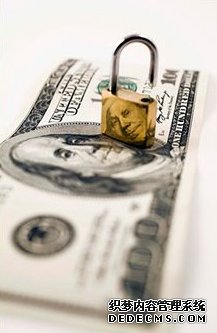
I saw something a bit disturbing last week. I had to stop at a drugstore to pick something up, and while there I saw a kid about thirteen years up buy a Monster drink, about 24 ounces of caffeine fix. That in itself saddened me, to think that this kid has been seduced by marketers and peers to think that a caffeine fix is a positive thing in life. I was shocked, though, to see the price affixed to the can: $3.49. This kid was spending more on one drink than anyone making minimum wage earns in half an hour of work--and I feel taken when I have to pay $1.19 for a large soda at a gas station when I'm traveling. I couldn't help but think that this kid never had been taught of the value of money, and of the concept of exchanging the money for something of comparable value.
I see this principal all over as I go through my day. I see rims on car wheels that cost upwards of $500, just for a little bit of decoration on a vehicle. I see people spend four or five dollars for a cup of coffee, hundreds of dollars for cell phones that they almost never use, thousands of dollars on huge television sets that they almost never watch. All around us are ads and commercials that keep us wanting to buy things that keep us dissatisfied with the way things are, and those ads and commercials are trying to convince us that if we just buy some more stuff--no matter what the cost--we'll be happier and more content.
But somewhere along the line we have to learn to make our own decisions about value. There's a common law of economics that states that many poor people will stay poor because of the decisions that they make about how to spend their money. How many people have you known or known of, for example, who have little money yet who buy a very expensive car with high monthly payments? And how many people are in trouble right now because they bought houses that were more expensive than they could afford?
While I wouldn't say that the answer to our money issues would be to skimp and save every penny and never have any fun in life, it is important that we learn about value and about when to spend how much. A few years ago, for example, my wife and I had cell phones. At the time I worked half an hour from home, I was on the road with sports teams a lot, and my wife also was on the road quite a bit. The cell phones made sense, even though we didn't use them much--at least we knew that if anything happened, we could contact one another.
Then we moved someplace where we didn't need the phones any more, for we both worked close to one another and we weren't on the road much. Suddenly, the $75 every month to keep the phones made no sense, so we got rid of them. They were now just a luxury item, no longer as necessary as they were before. They simply didn't have the same value that they had had before. And even though it had been quite convenient to make an occasional phone call from wherever I happened to be, that convenience was no longer worth the amount of money we would have had to pay to maintain it.
It's unfortunate that money is such a huge part of our lives, and that it affects our lives so very strongly. But that's the way things are, so the best that we can do is learn to define the value of our money for ourselves and to exchange our money for goods and services that have equal or even greater value. While a woman I know who is broke can go out and spend almost a hundred dollars on a new hairdo, I know that she really can't afford it, and that its value is not nearly as much as she thinks it is. When my wife and I go on vacation in a few weeks and spend $400 on a hotel room in Yosemite National Park, though--which is much more than we've ever spent on a hotel room before--we both have considered the cost, the location, and the reasons for our vacation, and we both agree that there is great value in the price that we'll pay.
Money is here, and it's a part of our lives. We can live with it and have it work for us, or we can squander it and lose it and become angry and frustrated with our loss. The choice is ours, but one thing is for sure--the path to happiness doesn't lie in exchanging our money for goods or services of little value; rather, we need to make sure that the money we spend is money well spent. Only then can we avoid the resentment and frustration that will come over having wasted money when we didn't need to.






